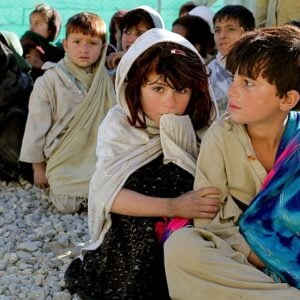Carl Skau, WFP Deputy Executive Director and Chief Operating Officer, has emphasized India’s pivotal role in addressing global hunger as Western funding declines. Speaking to PTI, Skau highlighted that India’s homegrown food security solutions, such as grain ATMs, rice fortification, smart warehousing, and supply chain optimisation, are more applicable to crisis-hit regions in Africa and Asia than the recent approaches from Europe or North America. With a 40 per cent cut to WFP funding, India’s transformation from a food-scarce nation to a global aid supplier provides a critical lifeline for the world’s most vulnerable populations.
WFP is strengthening cooperation with India through a planned memorandum of understanding to ensure predictable procurement of fortified rice. This partnership leverages India’s food surplus and allows faster, higher-quality aid delivery during emergencies. Skau noted that the collaboration has already yielded substantial savings, including $30 million through supply chain optimisation, which has been applied in crises across Ethiopia and Sudan. India’s successful programs, such as the National Food Security Act and the Mid-Day Meal Scheme, serve as models for countries like Sudan and Haiti, with WFP aiming to establish a “centre of excellence” to share India’s expertise globally.
Beyond food provision, Skau stressed the importance of India’s diplomatic influence in ensuring humanitarian access in conflict zones, including Afghanistan, Myanmar, Yemen, and Gaza. In Gaza, where famine has been declared in parts of the territory, WFP assists one million people monthly but faces severe logistical constraints. Skau warned that escalating global crises are exacerbated by reduced funding from traditional donors in the US, Europe, the UK, the European Union, and Germany, forcing WFP to make difficult trade-offs between the hungry and the starving.
Conflict, compounded by climate shocks and economic crises, drives the majority of global hunger, affecting two-thirds of the 320 million acutely food-insecure people worldwide. Skau highlighted Somalia as an example of a “perfect storm” of drought, floods, food inflation, and conflict. The Rohingya refugee crisis in Cox’s Bazar further underscores the urgent need for sustained aid, as about one million people remain entirely dependent on WFP assistance. Skau called on governments, businesses, and civil society—including India’s private sector and citizens—to provide funding and advocacy to support underreported crises in Sudan, Haiti, and the Democratic Republic of Congo.
With the UN’s Zero Hunger Goal for 2030 under threat, Skau concluded that India’s partnership with WFP is more critical than ever. Leveraging India’s innovative food security models and diplomatic influence could save millions of lives in global hotspots, ensuring that humanitarian aid reaches those most in need while mitigating the effects of funding cuts and escalating crises worldwide.







